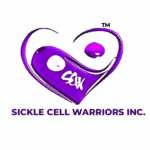S
S.2465, the Sickle Cell Disease Research, Surveillance, Prevention and Treatment Act of 2018
 In February 2018, the sickle cell community celebrated with the announcement of two legislative victories in Congress. First, the U.S. House of Representatives passed H.R. 2410 on February 26, 2018, the Sickle Cell Disease Research, Surveillance, Prevention, and Treatment Act. Then it was introduced on May 11, 2017, by Rep. Danny Davis (D-IL). Then, on February 28, 2018, Senator Cory Booker (D-NJ) and Senator Tim Scott (R-SC) introduced S.2465, the Senate companion bill to H.R. 2410 into the Senate.
In February 2018, the sickle cell community celebrated with the announcement of two legislative victories in Congress. First, the U.S. House of Representatives passed H.R. 2410 on February 26, 2018, the Sickle Cell Disease Research, Surveillance, Prevention, and Treatment Act. Then it was introduced on May 11, 2017, by Rep. Danny Davis (D-IL). Then, on February 28, 2018, Senator Cory Booker (D-NJ) and Senator Tim Scott (R-SC) introduced S.2465, the Senate companion bill to H.R. 2410 into the Senate.
About HR 2410
Above all, H.R. 2410 would authorize the Secretary of Health and Human Services to conduct surveillance and collect data on the prevalence of sickle cell disease (SCD). In addition, the bill would authorize the Secretary to develop public health initiatives that support community-based organizations in education activities and to support regional and state health departments in testing to identify SCD.
Most importantly, click here to read the key points of the legislation.
——————————————–
Key Talking Points about S.2465
- S.2465 – Sickle Cell Disease Research, Surveillance, Prevention, and Treatment Act of 2018- was introduced on February 28, 2018 by Sen Tim Scott [R-SC] and cosponsored by Sen. Booker, Cory A. [D-NJ]; Sen. Jones, Doug [D-AL]; Sen. Cassidy, Bill [R-LA]; Sen. Stabenow, Debbie [D-MI]; and Sen. Warren, Elizabeth [D-MA]
- S.2465 represents a commitment by the government to continue much-needed research geared towards increasing understanding of prevalence, distribution, outcomes, and therapies associated with SCD
- The legislation reauthorizes SCD prevention and treatment grants awarded by the Health Resources and Service Administration (HRSA)
- Authorizes the Centers for Disease Control and Prevention (CDC) to award SCD surveillance grants to states, academic institutions, and non-profit organizations
- It is imperative that the Senate HELP committee take action to move the bill towards a floor vote with the ultimate goal of cohesive passage by both Congressional houses and signature by the President into law
——————————————-
CONTACT YOUR SENATORS & LET YOUR VOICE BE HEARD
So, this is a major victory for the sickle cell community, and it has been a long journey to get to this momentous occasion. But, we still have work to do to ensure the Senate passes the companion bill. If we do not advocate for this bill, how can we expect others to do so?
Click here to find your senator.
- Begin by finding out who they are by plugging in your zip code.
- Their email addresses are provided and you can copy and paste the letter below and fill in the blanks, or write your own personal letter.
- Email your letters, including your name and address.
In conclusion, adding a personal touch to your letter is always meaningful.

